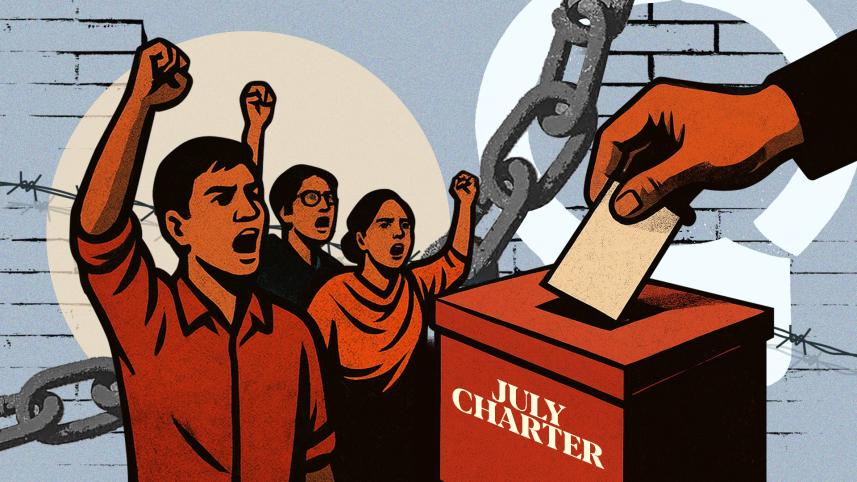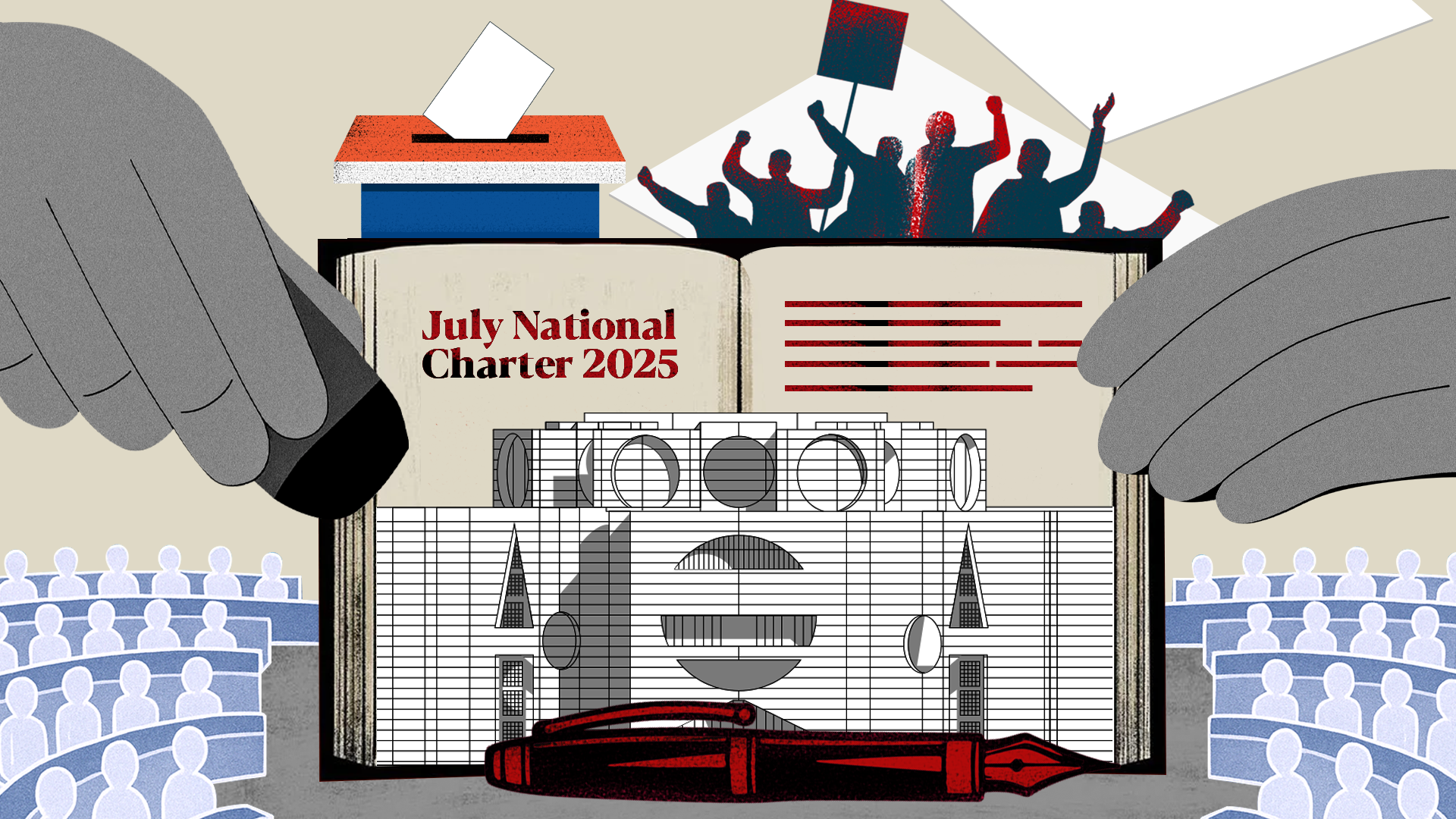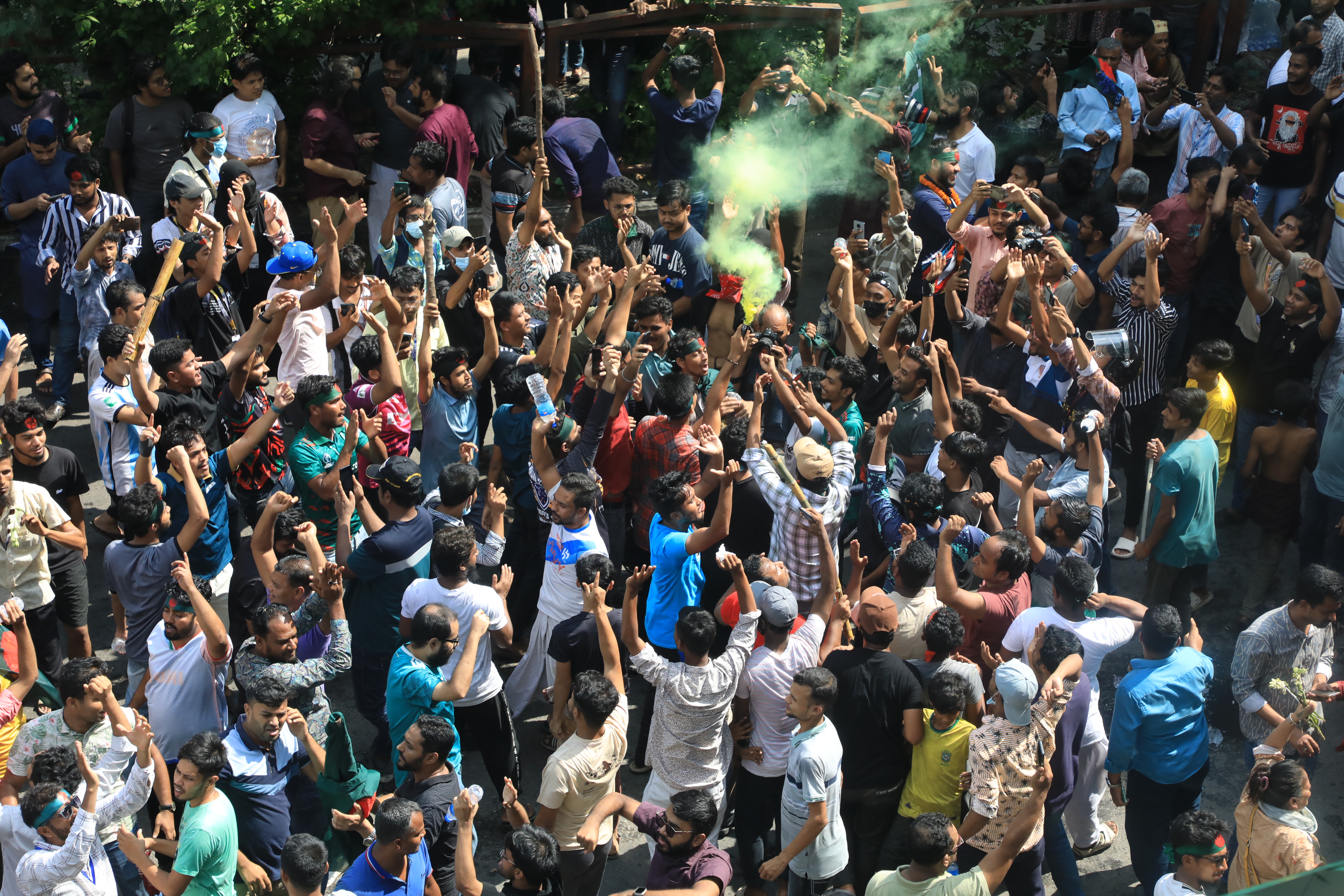Constituent power and a pathway for implementing July Charter

The much-awaited signing of the July National Charter on October 17 represents a defining moment in Bangladesh's long struggle to restore democracy. Emerging from the popular uprising of July 2024, the charter embodies the collective aspirations of citizens who sought to replace authoritarian repression with participation and accountability. Nearly all major political parties have now endorsed the charter. There are some who have not signed it owing to concerns about the charter's implementation rather than its content. This last bit indicates a broad recognition that the charter belongs to the nation as a whole.
Despite such consensus, divisions remain. The unresolved dissents on issues such as the composition of the Upper House, the appointment of the Election Commission and the framework for constitutional bodies threaten to become fault lines that could derail the entire process. But forcing through these contentious provisions would not be a solution either.
At a time when the economy is under strain, youth unemployment is rising, and institutions remain fragile, Bangladesh cannot afford another instability. The central question, therefore, is not whether the charter should be implemented, but how.
People as the source of constituent power
Following the Indian precedent in the Kesavananda Bharati case of 1973, the Supreme Court of Bangladesh sided with the doctrine of the basic structure, meaning constitutional elements such as democracy, the separation of powers, and the rule of law cannot be altered through ordinary amendment.
In any democracy, a distinction exists between "constituted power" and "constituent power." Constituted power refers to authority exercised within the framework of an existing constitution. Constituent power denotes the authority to make or remake that framework. The constituent power resides exclusively with the people. No government, commission, nor political party can claim it on their behalf. The July uprising reaffirmed this fundamental truth: legitimacy must originate from the people, and not from the state.
Some have proposed that the interim government enact the charter through a constitutional order or decree. History demonstrates that such approaches do not augur stability or legitimacy. Whenever constitutional change is imposed from above, without direct public consent, it produces nothing but division and erosion of trust.
Pakistan's repeated use of constitutional orders by military rulers, from Ayub Khan to Pervez Musharraf, undermined democracy and perpetuated authoritarianism. In Egypt, President Mohamed Morsi's attempt in 2012 to introduce constitutional amendments by decree provoked mass protests and eventually led to an autocracy.
Similarly, the call for a constituent assembly, while appealing, is fraught with risks. Historical examples, including the French Revolution's descent into terror, exhibit exclusion and conflict in the absence of a popular mandate. These showcase that legitimacy cannot be manufactured, rather it shall be conferred by the citizens.
The optimal constitutional and unifying way forward is, thus, to place the charter before the citizens for a referendum since there is a broad agreement on holding a referendum. The design of this referendum is, however, critical. A referendum with multiple, complex questions on specific provisions risks confusion and political manipulation, as seen, for example, in the failed 2022 constitutional referendum in Chile. Instead, such a referendum should ask one foundational question: whether the people of Bangladesh endorse granting constituent power to the next parliament. This simple process would allow citizens themselves to authorise their representatives to translate the charter's principles into a new constitutional framework. By doing so, Bangladesh would root its democratic renewal in the consent of the governed, transforming the charter from a negotiated political document into a legitimate social contract.
The July National Charter already provides a moral and political base for reforms. The challenge lies in determining the appropriate procedure for its implementation. Given the diversity of parties and persistence of disagreement, the charter can be put before the people, the sole authority. The proposed referendum elegantly resolves this. It does not ask citizens to vote on technically complex issues but to make a sovereign decision.
Then the provisions of the charter, where consensus was reached, would form the core mandate for the new parliament, while the contested provisions can be placed by the parties in their manifestoes, seeking mandate from the electorates. It would allow reforms to proceed with public approval while preserving space for parliamentary deliberation.
The election with such a referendum would not be an ordinary contest for power but an exercise in democratic renewal. The parliament emerging from it would function as authorised to give constitutional form to the aspirations expressed in the charter.
The democratic legal path
A referendum that authorises the next parliament to exercise constituent power would provide the necessary legal foundation to address the constraint while maintaining constitutional continuity. The parliament, deriving its constituent power directly from the people, would also ensure that reform remains rooted in the consent of the people rather than negotiation between parties.
Any attempt to impose it through decrees or administrative orders would violate both the constitutional principle of popular sovereignty and the moral legacy of the uprising. Only through a fair and transparent referendum can the charter acquire enduring legitimacy.
Democracy is not a gift conferred by those in power, but a continuous expression of the people's constituent authority. The referendum offers citizens the opportunity to decide whether the next parliament should possess the mandate to reshape the constitutional order.
The July National Charter thus stands not only as a political agreement but as a pivotal opportunity for a renewed social contract. In reaffirming that power belongs to the people alone, Bangladesh can transform the promise of the uprising into a durable democratic order.
Dr Rashed Al Mahmud Titumir is professor at the Department of Development Studies, University of Dhaka.
Views expressed in this article are the author's own.
Follow The Daily Star Opinion on Facebook for the latest opinions, commentaries and analyses by experts and professionals. To contribute your article or letter to The Daily Star Opinion, see our guidelines for submission.

 For all latest news, follow The Daily Star's Google News channel.
For all latest news, follow The Daily Star's Google News channel. 


Comments